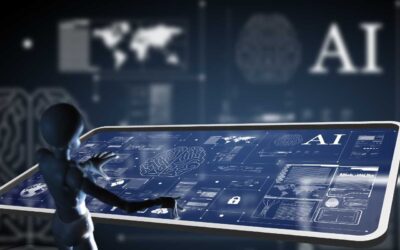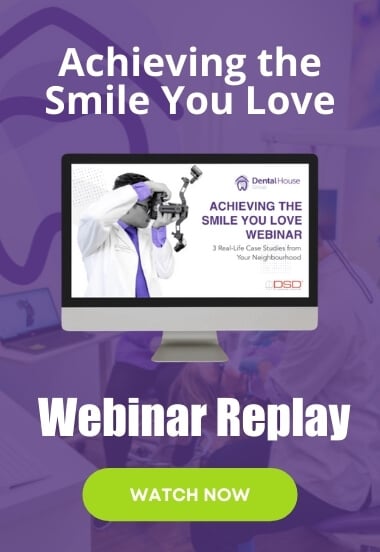Something Stuck In Your Teeth? It’s The Past And The Future
Something Stuck In Your Teeth? It’s The Past And The Future

Were you ever lucky enough to have simultaneously channelled Henry Steele Commager through a jangle of accidents, blunders, surprises and absurdities to stumble upon the ghost of popular American historian David McCullough, after the shock of such a happy happenstance, you’d hopefully have the wherewithal to ask him a couple of questions.
Firstly, and most respectfully, would have to be whether dying of a broken heart is as agonising as it sounds, and as it seems. He departed this mortal coil less than two months after his beloved wife, muse, editor and friend Rosalee made her way to wherever it is that we go from here.
A US study tells us it’s entirely possible.
Debbie Reynolds might attest to that were she passing by, passing comment on her own passing; just one day after her daughter Carrie Fisher found that the Force was indeed with her. According to Reynolds’ son Todd, her very last thing Debbie said was, “I want to be with Carrie.”
Words that suggest there could be something in the breakings and makings of a heart. If nothing else, it’s a stark reminder to be careful what you wish for.
Particularly if you’re a freshly minted widower over the age of 50, after a long and stable relationship. Which indeed David McCullough was, at 89. Those three things made him almost twice a likely to die within three months of Rosalee, and may incite him to some heavy heavenly debate with Mark Twain, regarding his crack about “… lies, damn lies and statistics”.
A second question that might be asked of the spirit of the spirited double Pulitzer Prize-winning historian (if nothing came to mind about Harry Truman, John Adams or the Brooklyn Bridge) is whether it’s heartbreak or possibilities that drive those who preserve and decipher the past.
For so many people across so many fields of work, McCullough’s quote that “History is who we are and why we are the way we are” must somehow soften, or soundlessly guide such a fractious and unruly present in which we all live.
McCullough lived it too. And for a long time (until recently).
Was that thought of his an heuristic anchor? Did he share it to keep others not so adrift in the unrelenting undertow of existence, once eloquently described by Henry David Thoreau as “quiet desperation”?
So many questions for one ghost, when so many ghosts have answers to questions we hadn’t yet asked.
Every spectre tells a story.
The tales of mediaeval skeletons certainly have teeth, because that’s the part telling the story. With a backstory much like our own.
From the 11th century, to the early 14th century, the population of England tripled: from 1.1 million in 1086, to about 3.7 million in 1300; presumed to be due to a 0.5° rise in temperature.
It brought wetter summers, and warmer winters.
11th century Britain was a nation of woodlands. The Domesday (Doomsday) Book of 1086 – the most complete record of pre-industrial people, politics, and produce – describes a country stocked with timber.
The population expansion led to a massive increase in the demand for food; the result being huge conversions of land from woods to arable acreage. And although mediaeval citizens were well aware of the economic importance of forestry at the time, the immediate requirements of food, firewood and stock outweighed the long-term outcome of sustainable management that was replicated throughout Europe.
The short story is that it marked the beginning of air pollution and the rise of infectious disease.
Eight hundred years later, we have novel means to give new insights into health and immunity.
Understanding lives lived long ago and human behaviour that may explain past strategies or catastrophes, includes the extraction of information suspended in bone, teeth and stone. The porosity of teeth and bones holds blood, sweat and tears and they’re the kind of stories we like to hear about ourselves.
Extracting DNA is scientific art that’s been full of promise since 1869, when Swiss physician Friedrich Miescher first isolated it in the hope of solving the chemical composition of cells, and thereby determine the fundamental principles of life.
And you thought the Swiss were all about the chocolate.
Certainly, much has been achieved in the hundred-and-fifty-plus years since. (Let’s not count the ways). However, until recently, DNA extraction has been destructive to the sample, and risked altering the specimen. New protocols mean it’s now possible to draw inferences like the sex and ancestry of humans who had worn or handled a 25,000-year-old artefact.
As incredible as that is, that’s not even the story of this story.

Collaboratively, Life Science, and medical researchers at the University of Nottingham and University College London, discovered that antibodies in the teeth of these mediaeval remains were both stable, and capable of viral protein recognition.
They’re not only intact after all this time, but they retain functionality.
It means they have molecular memory.
Which makes a story that can be ‘read’ by contemporary immunology processes.
Produced as a natural form of defence, how these proteins have developed over history is crucial in understanding how the immune system works. It allows scientists to retroactively identify what they were designed to fight against, and in doing so, they become the distant witness to how disease and human biological protection evolve.
We have a past pathogen path to the future.
As an historian now in the world but not of it, David McCullough would be dead happy with that.
Note: All content and media on the Bacchus Marsh Dental House website and social media channels are created and published online for informational purposes only. It is not intended to be a substitute for professional medical advice and should not be relied on as health or personal advice.
Services we mentioned:
Related Articles
Mouth Wash: What’s In It & Does It Really Help?
Manufacturers produce a veritable ocean tanker full of mouth washes for our gargling pleasure. These bottles of brightly colour liquids are stacked up on pharmacy and supermarket shelves like an installation awaiting a light show. There are green, blue, purple, and...
The Rise And Rise of Living Costs Are Stopping Us Going To The Dentist
Since at least 2019, we seem to be moving from one global crisis to another; we suffer one disturbance and shock after another. We do indeed, live in interesting times. So interesting in fact, that it’s not so much Confucius but confusion around the origin of that...
Periodontal Analysis Benefits from Artificial Intelligence
Artificial Intelligence (AI) is on everybody’s’ lips. AI, it seems, will be the answer to every question and will, possibly, make every current situation better. Humanity has an abiding love affair with a technology, which is ultimately non-human. Perhaps, it speaks...
Dental Tourism: Tijuana Cheaper Dental Procedure? Dubai Veneers For Less?
By guest writer Suzanne Wyhldher It’s a tough decision when the dental work we need is beyond our budget - generally because for some reason the mouth in most countries is treated as separate from the rest of the body. For many people, their mouth is what gets them/us...














